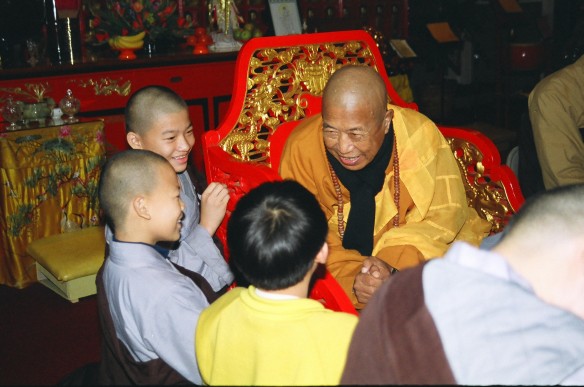
In reading essays on Master Hua’s life, I came across this quote:
“The Master was always open, direct, and totally honest with everyone in every situation. He treated everyone equally, from the President of the United States to little children.”
It makes me reflect: Am I honest? Do I say what I mean? Well, I try. Yet, I often notice how strands of my ego color and shade the meanings and intentions behind my words.
It made me smile. Mainly because that type of direct, open honesty can be hard to come by these days. It makes me reflect: Am I honest? Do I say what I mean? Well, I try. Yet, I often notice how strands of my ego color and shade the meanings and intentions behind my words. My limited worldview, or my own insecurities, fears, and doubts, can cause me to over or under-compensate my speech and acts so that they will come across in the way I want. Already, this type of thinking is a kind of performance. I am composing and filtering my thoughts and acts to create an image of who I want to be. Why? Read More …
 SHARE
SHARE EMAIL
EMAIL COMMENT3 comments
COMMENT3 comments






